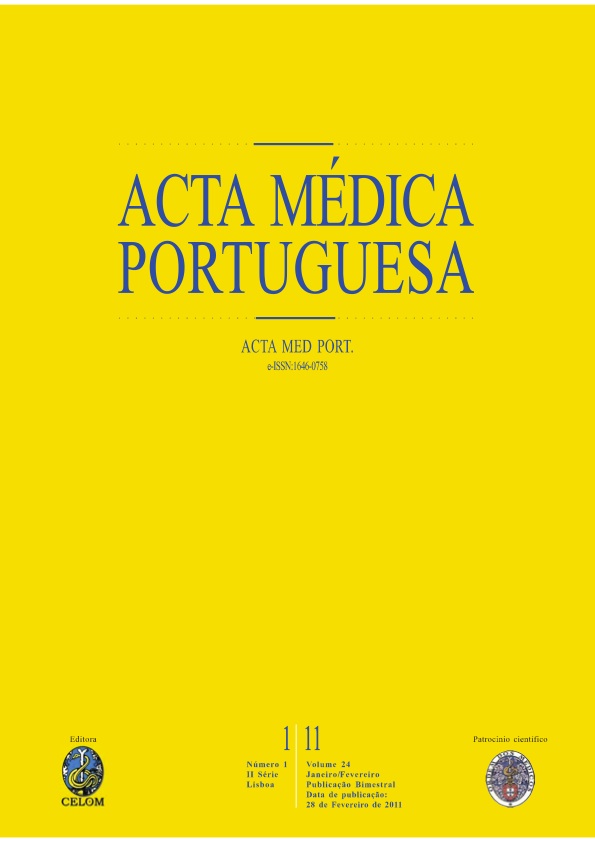Is there a biological plausability for p53 codon 72 polymorphism influence on cervical cancer development?
DOI:
https://doi.org/10.20344/amp.335Resumo
The interaction between HPV E6 and p53 protein is known as the most important event in HPV-associated carcinogenesis. Some in vitro studies suggested that p53 genetic variants are targeted for ubiquitin-proteasome degradation induced by E6 with different abilities. A common p53 variant at position 72 (R72P) has leaded to the development of several studies regarding its role on cervical cancer development. However, only few reports have shown an association between the Arginine (R) variant at position 52 of p53 and increased susceptibility to HPV E6 mediated degradation and thus to increased cancer susceptibility. We revised the literature in order to obtain plausible data to discuss about these evidences for cervical cancer susceptibility. The more recent studies, including meta-analysis reviews, point out that there is no association of this p53 variant and cervical cancer development. This variant seems to be differently segregated in different ethnic/geographical locations; therefore, there might be a possible role of this genetic variant associated with a certain genetic background, which can explain why some studies reveal increased risk of cervical cancer development associated with Arginine p53 variant.Downloads
Downloads
Publicado
Como Citar
Edição
Secção
Licença
Todos os artigos publicados na AMP são de acesso aberto e cumprem os requisitos das agências de financiamento ou instituições académicas. Relativamente à utilização por terceiros a AMP rege-se pelos termos da licença Creative Commons ‘Atribuição – Uso Não-Comercial – (CC-BY-NC)’.
É da responsabilidade do autor obter permissão para reproduzir figuras, tabelas, etc., de outras publicações. Após a aceitação de um artigo, os autores serão convidados a preencher uma “Declaração de Responsabilidade Autoral e Partilha de Direitos de Autor “(http://www.actamedicaportuguesa.com/info/AMP-NormasPublicacao.pdf) e a “Declaração de Potenciais Conflitos de Interesse” (http://www.icmje.org/conflicts-of-interest) do ICMJE. Será enviado um e-mail ao autor correspondente, confirmando a receção do manuscrito.
Após a publicação, os autores ficam autorizados a disponibilizar os seus artigos em repositórios das suas instituições de origem, desde que mencionem sempre onde foram publicados e de acordo com a licença Creative Commons









